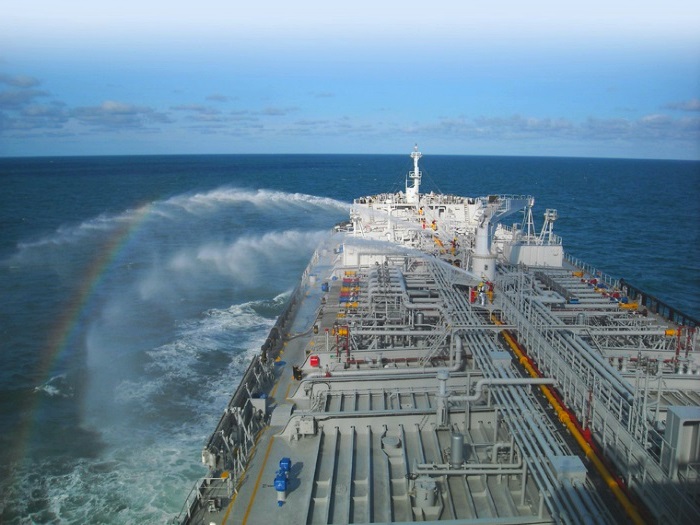Tanker Market Stands to Benefit from Canada’s Trans Mountain Extension project
 The tanker market could be set to receive a positive boost, from an increase in cargo availability and ton-mile demand. In its latest weekly report, shipbroker Gibson said that “in a recent tanker market report, we highlighted some of the current issues surrounding transit crude and crude pipelines; on that note, attention once again has turned to Canada’s Trans Mountain Extension project (TMX). Concerns have been raised that rising constructions costs and inflationary pressures related to labour shortages and material costs mean further investment in the region of C$9.1 billion is required this year to see the project come online in Q1 2024. This comes after a long running series of startup delays; as well as the Canadian federal government having to become financially involved and growing environmental concerns”.
The tanker market could be set to receive a positive boost, from an increase in cargo availability and ton-mile demand. In its latest weekly report, shipbroker Gibson said that “in a recent tanker market report, we highlighted some of the current issues surrounding transit crude and crude pipelines; on that note, attention once again has turned to Canada’s Trans Mountain Extension project (TMX). Concerns have been raised that rising constructions costs and inflationary pressures related to labour shortages and material costs mean further investment in the region of C$9.1 billion is required this year to see the project come online in Q1 2024. This comes after a long running series of startup delays; as well as the Canadian federal government having to become financially involved and growing environmental concerns”.
Source: GIBSON SHIPBROKERS
According to Gibson, “on a more positive note, the project is reported to be 80% complete as of writing and will extend the current pipeline capacity from 300 kbd to 890 kbd (a 590 kbd increase), reflecting an important development in Canada’s petroleum industry by allowing landlocked Albertan grades to be shipped West via a proposed export terminal exclusive to Aframaxes on the West Coast of Canada. In effect, this will create an entirely new market route in the Pacific. Additionally, IEA data suggests Canadian crude production remains robust, despite the current wildfire related outages, with 2023 output levels forecast at 5.82 mbd, up from 5.76 mbd”.
The shipbroker added that “most of this crude is expected to be shipped to either US West Coast Refiners or longer haul to Asian buyers looking for heavy sour grades in which West Canada Select (WCS), and Cold Lake might compete favourably with some heavy grades that are popular with Asian refiners. The advantage here is that this could allow greater crude procurement flexibility in both regions and Canadian crude has the benefit of not being subject to sanctions as some other heavy grades originating from Venezuela and Iran”.

“This is a positive development for the tanker market by increasing cargo availability and tonne miles at a time when fleet capacity is beginning to show signs of being squeezed and Aframax deliveries should remain limited. However, this latest costing issue shows more is still required to make this project a reality, but progress is being made and most signs point to the pipeline extension finally nearing an operational start up. However, after construction is complete, further delays may occur in the form of environmental challenges and legal cases, but this remains to be seen. There is also the risk of the project not reaching its full export potential or being curtailed if political support is lacking, but this seems unlikely given the large sunk capital costs involved in the expansion to date”, Gibson said.
The shipbroker concluded that “more broadly, unlike other pipeline systems currently facing disruption in other countries, Canada offers relative stability, and this should ensure a smooth operation into the future and steps can likely be taken to mitigate TMX’s environmental impact. Likewise, it offers an alternative export route for Canadian crude besides the USG via alternative pipelines such as Keystone. In the meantime, Aframax owners should have something extra to look forward to into 2024-2025 if we finally see a startup”.
Nikos Roussanoglou, Hellenic Shipping News Worldwide
No comments:
Post a Comment